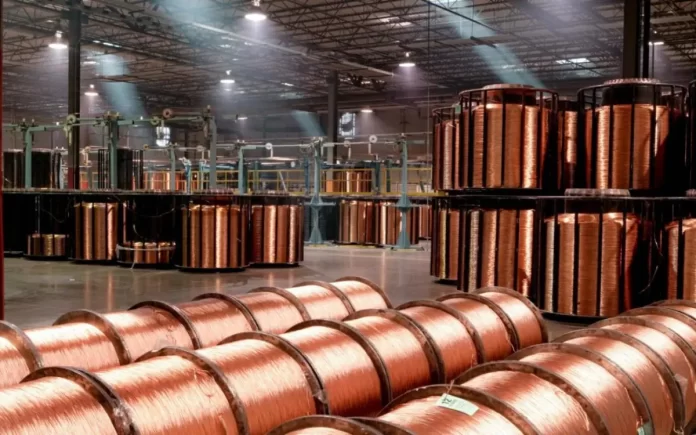Lausanne: Trafigura, a prominent commodity trader, forecasts that the demand for copper, driven by artificial intelligence (AI) and data centers, could surge by up to one million metric tons by 2030, potentially aggravating supply deficits towards the decade’s end.
The trajectory of the energy transition, encompassing electric vehicles and renewable energy technologies, is anticipated to propel a significant uptick in copper consumption in the forthcoming years as global efforts intensify to reduce carbon emissions.
Saad Rahim, the chief economist at Trafigura based in Switzerland, emphasized the sudden explosion in demand attributable to data centers and AI. Speaking at the Financial Times Global Commodities Summit in Lausanne, Rahim highlighted that the projected one million ton surge would compound the existing four to five million ton deficit anticipated by 2030. Notably, this additional demand has not been factored into prevailing supply and demand assessments.
Also Read: Germany’s Military Deployment in Lithuania Sparks Tension with Kremlin
Although Rahim refrained from providing a specific figure for global copper demand in 2030, current estimates place global demand at approximately 26 million tons for the present year. A Reuters survey conducted in January projected a copper market deficit exceeding 100,000 tons by 2025, escalating from the 35,000-ton shortfall expected this year.
China, serving as both the largest producer and consumer of copper globally, holds significant sway over the supply chain of numerous other industrial metals crucial for the energy transition. This dominance poses concerns for Western nations striving to achieve net-zero targets.
Beata Javorcik, the chief economist at the European Bank for Reconstruction and Development, expressed apprehensions regarding the geopolitical implications on the green transition. Javorcik highlighted China’s control over the production of critical raw materials, such as rare earths and graphite essential for electric vehicle batteries, which may potentially impede the transition efforts of Western nations and their allies.



